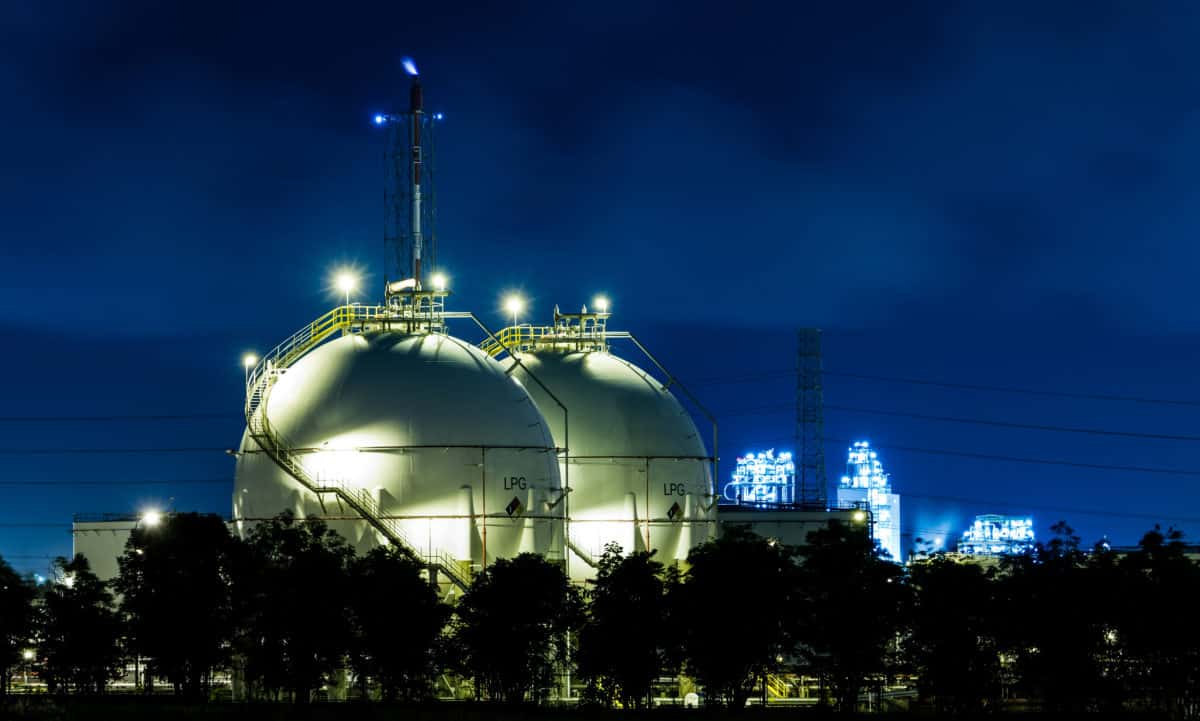In a world that heavily relies on fossil fuels, gas storage plays a crucial role in ensuring energy security and stability. The availability of stored natural gas enables us to meet peak demand, smooth out supply fluctuations, and cope with unforeseen circumstances such as extreme weather events and geopolitical tensions. Recently, the gas market has experienced significant changes, with gas prices falling and gas storage becoming more vital than ever. We delve into the current state of gas markets and explore the implications of falling gas prices on energy consumption, industry dynamics, and future strategies.
Gas Storage and Its Importance
Gas storage facilities are essentially large reservoirs designed to hold natural gas for future use. As gas prices fall, these storage facilities gain even more significance as they allow for the accumulation of gas during periods of low demand and low prices. This strategy enables us to balance the ebb and flow of supply and demand, ensuring that consumers have access to affordable and reliable energy even during times of gas shortage or sudden price spikes.
The gas market is witnessing a surprising trend despite the ongoing European heatwave and the surge in electricity demand for cooling purposes. Gas inventories have been steadily increasing at a rapid pace, indicating a favorable situation for consumers and industry players.
Based on data from Gas Infrastructure Europe (GIE), as of 16th July, European Union gas inventories reached an impressive 94.52 billion cubic meters (bcm). This figure is notably 21.73bcm higher compared to the same period last year, showcasing a substantial year-on-year growth. Furthermore, the current gas inventories are 18.46 bcm above the five-year average, indicating a surplus of supply in the market.
The recent surge in wholesale gas prices falling may raise concerns among industry players and investors. However, it also presents an opportunity for countries and companies to bolster their gas storage capabilities. By capitalizing on the current market conditions, they can secure gas at lower costs, reducing the vulnerability to future price fluctuations and possible supply disruptions.

The Bearish Gas Market: Rising Inventories
As highlighted in a report by Oil Price, the gas market has remained bearish due to a considerable rise in inventories. The increased production and reduced demand in the aftermath of the global pandemic have contributed to this phenomenon, leading to a surplus of gas in the market. Consequently, this has led to wholesale gas prices falling.
With gas prices to fall, companies involved in gas production and distribution must exercise prudence in their decisions to prevent an overabundance of gas that could exceed storage capacities. Nevertheless, this situation provides an opportunity for these entities to optimize their gas storage infrastructure further.
As the energy landscape evolves, so must our strategies for ensuring energy security. Governments and industry leaders must recognize the potential of gas storage in mitigating the impact of gas shortages and volatile gas prices. By investing in modern and resilient storage facilities, they can enhance their capacity to stockpile gas during periods of plenty and release it when needed, stabilizing the market and protecting consumers from sudden price surges.
Furthermore, technological advancements in gas storage and distribution can optimize the process and enhance efficiency. Innovative solutions, such as advanced monitoring and automation systems, can prevent gas wastage and improve safety measures, benefiting both the industry and the environment.
Strengthening Gas Storage for a Stable Energy Future
The current state of the gas market offers a unique window of opportunity to strengthen gas storage capacities as gas prices fall. Investing in this critical infrastructure can safeguard against gas shortages and prevent price spikes, ensuring a stable and secure energy future. As the world transitions towards cleaner and more sustainable energy sources, gas storage will continue to be an essential pillar in the energy security strategy.
The increasing gas inventories in Europe, as noted by Standard Chartered and the data from Gas Infrastructure Europe (GIE), present an optimistic outlook for the energy market amid the European heatwave and surging electricity demand. The surplus gas supply showcases the effectiveness of gas storage facilities and offers stability and potential cost savings for consumers and businesses.
- SEO Powered Content & PR Distribution. Get Amplified Today.
- PlatoData.Network Vertical Generative Ai. Empower Yourself. Access Here.
- PlatoAiStream. Web3 Intelligence. Knowledge Amplified. Access Here.
- PlatoESG. Automotive / EVs, Carbon, CleanTech, Energy, Environment, Solar, Waste Management. Access Here.
- BlockOffsets. Modernizing Environmental Offset Ownership. Access Here.
- Source: https://www.financebrokerage.com/gas-markets-remain-bearish-as-inventories-rise/
- :has
- :is
- 46
- a
- above
- access
- accumulation
- advanced
- advancements
- affordable
- aftermath
- against
- allow
- also
- Amid
- among
- an
- and
- ARE
- AS
- At
- Automation
- availability
- average
- Balance
- BE
- bearish
- becoming
- been
- benefiting
- Billion
- bolster
- both
- businesses
- by
- CAN
- capabilities
- capacities
- Capacity
- capitalizing
- Changes
- Chartered
- circumstances
- Companies
- compared
- Concerns
- conditions
- Consequently
- considerable
- Consumers
- consumption
- continue
- contributed
- Cost
- cost savings
- Costs
- could
- countries
- critical
- Critical Infrastructure
- crucial
- Current
- Current state
- data
- decisions
- Demand
- designed
- Despite
- disruptions
- distribution
- due
- during
- dynamics
- effectiveness
- efficiency
- electricity
- enables
- energy
- Energy Consumption
- Energy Market
- enhance
- ensuring
- entities
- Environment
- essential
- essentially
- Europe
- European
- european union
- Even
- events
- EVER
- evolves
- exceed
- Exercise
- experienced
- explore
- extreme
- facilities
- Fall
- Falling
- favorable
- Figure
- flow
- fluctuations
- For
- For Consumers
- fossil
- fossil fuels
- from
- fuels
- further
- Furthermore
- future
- Future Price
- Gain
- GAS
- gas prices
- geopolitical
- Global
- global pandemic
- Governments
- Growth
- Have
- heavily
- higher
- Highlighted
- hold
- However
- HTTPS
- Impact
- implications
- impressive
- improve
- in
- increased
- increasing
- indicating
- industry
- Infrastructure
- innovative
- into
- investing
- Investors
- involved
- IT
- ITS
- jpg
- July
- landscape
- large
- Last
- Last Year
- leaders
- leading
- Led
- Low
- low prices
- lower
- Market
- market conditions
- Markets
- May..
- measures
- Meet
- mitigating
- Modern
- monitoring
- more
- must
- Natural
- Natural Gas
- needed
- Nevertheless
- notably
- noted
- of
- Offers
- Oil
- oil price
- on
- ongoing
- Opportunity
- Optimistic
- Optimize
- or
- our
- out
- Outlook
- Pace
- pandemic
- Peak
- period
- periods
- phenomenon
- Pillar
- plato
- Plato Data Intelligence
- PlatoData
- players
- plays
- Plenty
- possible
- potential
- present
- presents
- prevent
- price
- Price Fluctuations
- Prices
- process
- Production
- protecting
- provides
- purposes
- raise
- rapid
- reached
- recent
- recently
- recognize
- Reduced
- reducing
- release
- reliable
- remain
- remained
- report
- resilient
- Rise
- rising
- Role
- Safety
- same
- Savings
- secure
- security
- shortage
- shortages
- showcasing
- significance
- significant
- situation
- smooth
- So
- Solutions
- Sources
- spikes
- Stability
- stable
- standard
- Standard Chartered
- State
- storage
- stored
- strategies
- Strategy
- Strengthen
- substantial
- such
- sudden
- supply
- Supply and Demand
- surge
- Surges
- surging
- surplus
- surprising
- sustainable
- Sustainable Energy
- Systems
- technological
- tensions
- than
- that
- The
- the world
- their
- These
- they
- this
- times
- to
- towards
- transitions
- Trend
- unforeseen
- union
- unique
- us
- use
- vital
- volatile
- vulnerability
- we
- Weather
- webp
- when
- wholesale
- will
- window
- with
- witnessing
- world
- year
- zephyrnet












